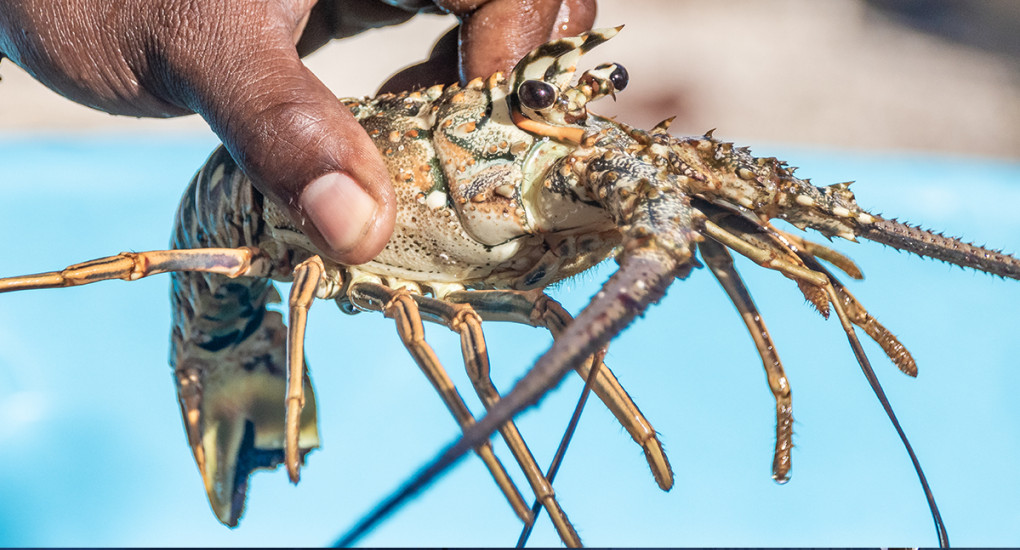Blending science with community engagement is a cornerstone of many innovative initiatives across the world and a key driver of success, particularly in the sustainable management of marine resources. In this blog, we explore how the Caribbean Spiny Lobster Project in the Bahamas brings together community engagement and science-based approaches to protect the Caribbean spiny lobster, a species vital to both ecosystems and livelihoods.
Led by the University of Exeter’s Dr Robert Ellis, in partnership with Cape Eleuthera Institute (CEI) and the UK’s National Lobster Hatchery, the Caribbean Spiny Lobster Project set out to ensure the sustainable management of this economically and ecologically significant marine resource in The Bahamas and the wider Caribbean. Hand-in-hand with Bahamian fishers, the project developed and implemented innovative fisheries management and aquaculture practices designed to strengthen livelihoods while ensuring that lobster populations thrive for generations to come.
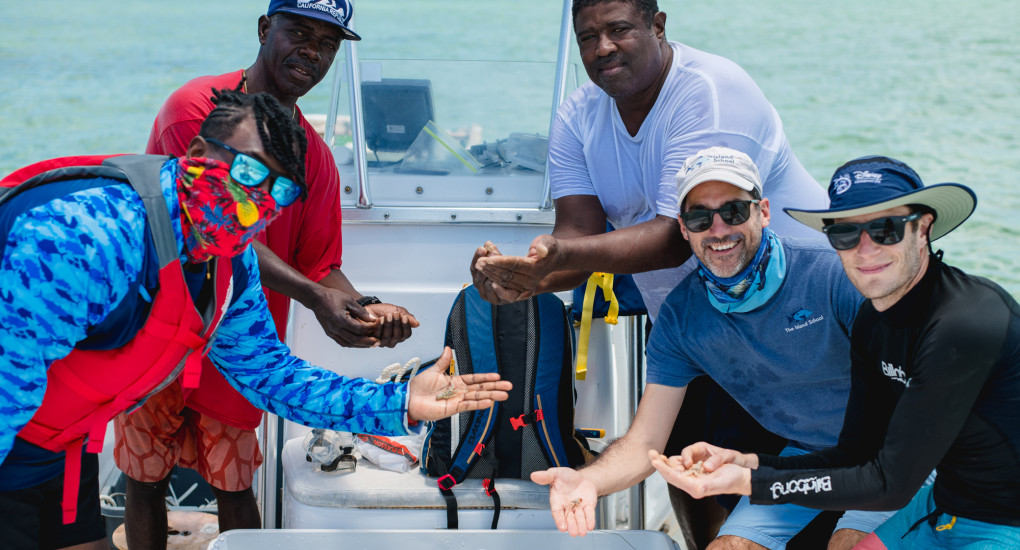
From July 2022 to May 2024, the project received funding and mentorship from the UNDP Ocean Innovation Challenge as part of the second cohort. This cohort of ocean innovations introduces cutting-edge technologies and innovative approaches to enhance small-scale fishers’ access to technical and financial resources and improve livelihoods, particularly in the Small Island Developing States (SIDS) and coastal Least Developed Countries (LDC).
Science meets community: a multi-disciplinary approach
The Caribbean Spiny Lobster Project adopted a multidisciplinary approach, driving significant impacts across its core innovations. It generated critical knowledge on the genetic diversity of Caribbean spiny lobster populations, highlighting the need for regional species management. It laid the groundwork for establishing nurseries to support sustainable aquaculture by successfully culturing over 200 newly settled spiny lobster juveniles in land-based facilities. Just as importantly, the project engaged local fishers to co-develop sustainable, community-led aquaculture initiatives that ensure lasting benefits for the community and the long-term health of the fishery.
The project’s multi-disciplinary approach not only protects the ecological health of marine ecosystems but also strengthens the economic resilience of local communities that depend on the spiny lobster fisheries for sustenance.
Combining community engagement and scientific knowledge
A core pillar of the project was its emphasis on education and capacity building that promoted the conservation and sustainable use of the spiny lobster. Through the focused consultations with fishers, government representatives, students, women, and girls, the project captured the community insights and assessed the feasibility of future Caribbean spiny lobster nursery facilities.
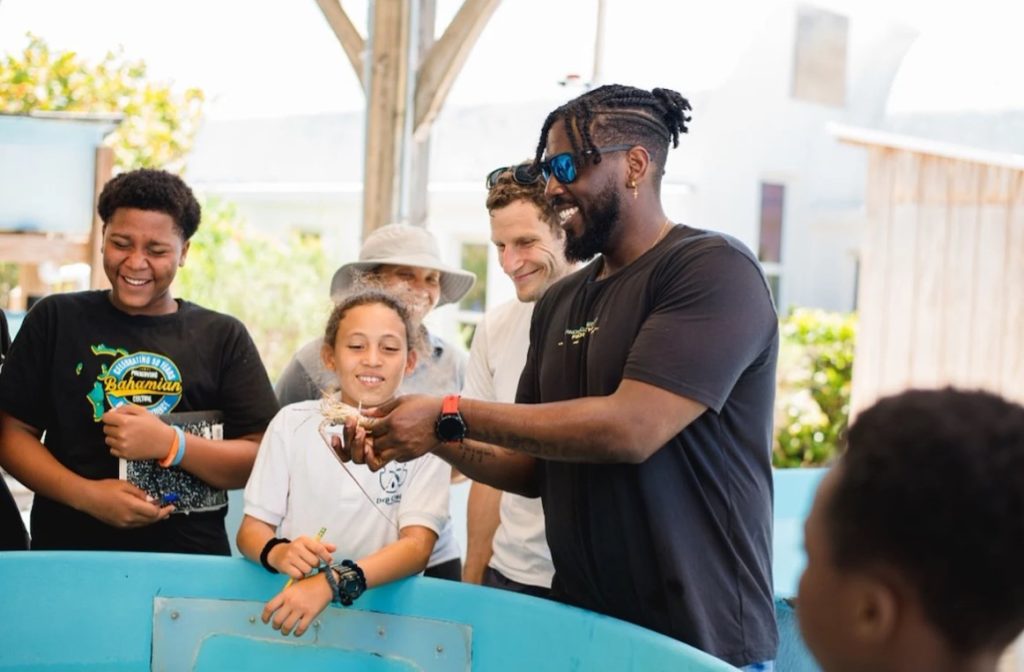
Dr Robert Ellis explains, “We undertook several focus groups with local communities to capture local perspectives on acceptance of the proposed activities. This included interviewing over 30 fishers, as well as multiple school groups, local community members, and policy groups, including the Department of Marine Resources and Bahamas National Trust.”
“These events are crucial because they enable us to build a clear understanding of the importance of spiny lobster to local communities and ensure the innovations we propose are regionally appropriate, making them much more likely to succeed. Working with local fishers also allows us to build trust and ensure the activities benefit those communities already so reliant on this marine resource, rather than competing with or replacing the fishery.”
In this project, local fishers played a key role in co-developing innovative, small-scale grow-out operations tailored to the Bahamian context. These regionally targeted efforts aim to advance sustainable aquaculture practices for the Caribbean spiny lobster while supporting sustainable livelihoods and strengthening coastal development.
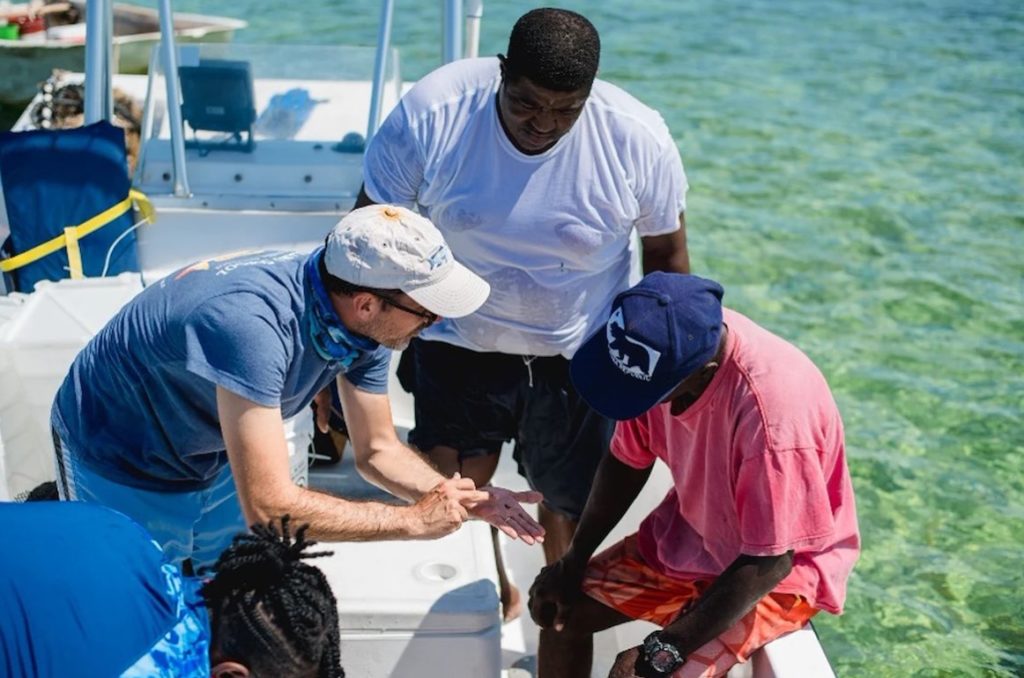
Knowledge transfer and capacity building further ensure that the benefits of the project extend beyond its two-year timeframe, creating a lasting positive impact on both the environment and society. The project effectively facilitated education programmes and knowledge exchanges, helping translate genetic insights and aquaculture trials into grounded community-led practices. These efforts empowered local stakeholders to take active roles and ownership in sustainable fisheries management. In addition, the project produced industry resources for fishers and communities to build capacity and promote best practices. The team also developed a policy consideration report promoting the sustainable use of Caribbean spiny lobster that is both regionally sensitive and environmentally responsible.
What’s next?
Looking ahead, the project will continue to prioritise community engagement as the foundation for sustainable fisheries management, working closely with fishers across the region. This approach ensures that policies and practices reflect crucial local knowledge and the community’s needs.
A key next step is establishing a community-managed nursery facility for the Caribbean spiny lobster that enables small-scale aquaculture and stock enhancement. This will be complemented by efforts focusing on sourcing sustainable feed ingredients, exploring alternative grow-out systems such as sea-pens and cages, and assessing the survival of captive-reared lobsters in the wild.
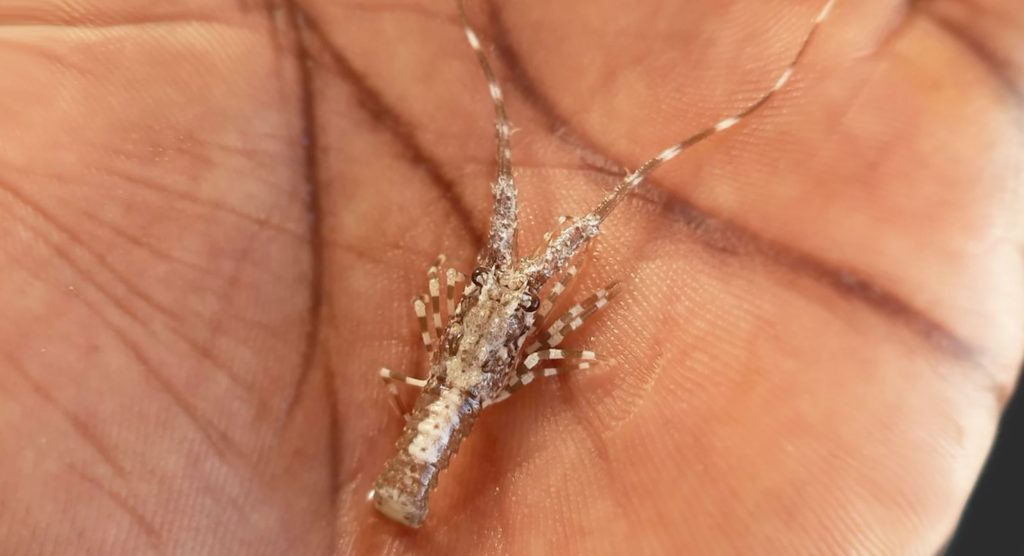
The Caribbean Spiny Lobster Project, rooted in science and local knowledge, and community engagement, serves as a strong model for marine conservation and sustainable development in coastal communities.
Visit the Ocean Innovation Challenge website to learn more about this project: https://dev.oceaninnovationchallenge.org/ocean-innovations/caribbean-spiny-lobster

